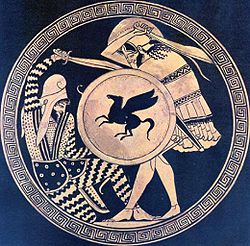
German geologists from Aachen University found evidence that a tsunami recorded by the ancient historian Herodotus did indeed protect a Greek village from Persian invaders.
The geologists say they have found evidence in northern Greece that the event in 479 saved the village of Potidaea.
Herodotus recorded that huge waves had killed hundreds of Persian soldiers during the siege of the village.
The scientists warn the area may experience another massive marine event.
They say that northern coastal regions should be included among the Greek regions prone to tsunamis.
It is usually the southern coast of Greece which is identified as a risk area.

Greek geophysicists say earthquakes pose a much greater threat to the country than tsunamis.
“We have found several historic tsunamis on the coast,” Aachen’s Professor Klaus Reicherter told Germany’s DPA news agency.
“That means there is a certain risk for the coastal areas.”
Sediment on the northern Greek peninsula where Potidaea and the modern town of Nea Poteidaia are located shows signs of massive marine events, such as large waves, the Aachen study found.
Excavations in the suburbs of the nearby ancient city of Mende uncovered sea shells likely to have been lifted from the ocean bed and tossed about during a tsunami.
The findings were presented at the annual conference of the Seismological Society of America in San Diego, California.
Herodotus records: “Then there came upon them [the Persians] a great flood-tide of the sea, higher than ever before, as the natives of the place say, though high tides come often.
“So those of them who could not swim perished, and those who could were slain by the men of Potidaia who put out to them in boats.”